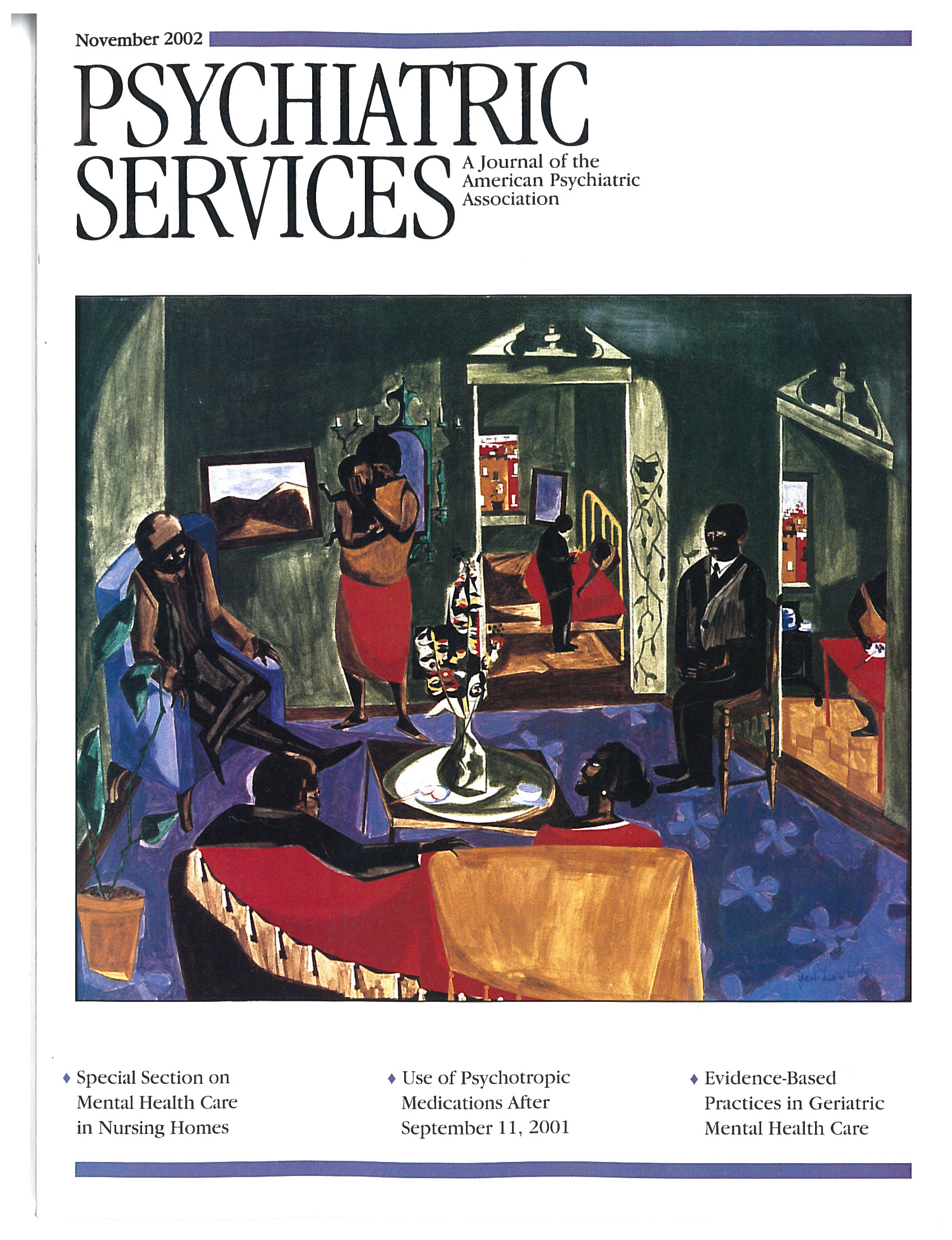Changes in Psychotropic Drug Use After September 11, 2001
To the Editor: The September 11, 2001, terrorist attacks were unprecedented in scope, and Americans viewed them over and over again on television. In this study we sought to determine whether the American public suffered symptoms of stress that led to an increase in prescription psychotropic drug use in the weeks after the attacks.
We obtained pharmaceutical data from PDC Health, a health care organization that monitors use of pharmaceuticals throughout the country. Information on prescriptions of benzodiazepines, antidepressants, and antipsychotics for our home state of Pennsylvania and for the country as a whole were obtained for the six-month period before September 11 and for the seven-week period after the attacks. Chi square analysis was used to determine the significance of differences between the two periods.
In both Pennsylvania and the country as a whole, small but statistically significant increases in prescription rates for all medication types were noted. For antidepressant prescriptions, a 5.5 percent increase in new prescriptions was noted in Pennsylvania (p=.001). For the country as a whole, there was a 4.8 percent increase in new antidepressant prescriptions (p=.005). The increase in antidepressant prescriptions was 4.9 percent in Pennsylvania (p=.001) and 4.6 percent nationwide (p<.001).
New prescriptions for antipsychotic medications increased by 4.4 percent in Pennsylvania (p=.001) and by 5 percent nationwide (p<.001). Among new and existing prescriptions for antipsychotic medications, the increase was 4 percent in Pennsylvania (p=.001) and 4.8 percent for the country as a whole (p=.001).
The prescription rate for benzodiazepines showed similar increases. In Pennsylvania, new prescriptions increased by 6 percent in the seven-week period after September 11 (p<.001). A nationwide increase of 5.2 percent was also documented (p<.001). The rate of increase for new and existing prescriptions for benzodiazepines was 3.5 percent in Pennsylvania (p=.001) and 3.6 percent nationwide (p=.004).
These data show a small but clear increase in use of prescription drugs in the weeks after the September 11 attacks. In a survey of 560 randomly selected U.S. adults, 90 percent indicated that they experienced one or more symptoms of stress after September 11 (1). The data presented here suggest that a small number of Americans needed prescription medications to help manage symptoms of stress. Thus it appears that even the indirect experience of a stressful event—on television and in other media—can produce significant symptoms of stress.
The increased use of psychotropic medications was remarkably consistent across medication types. The increase in use of antipsychotics was roughly the same as that for benzodiazepines and antidepressants. This finding suggests a greater need for prescription medications across diagnostic categories. These data suggest that, should future terrorist attacks occur, a small but significant increase in the need for mental health care among Americans will occur and the increase will be seen across all diagnostic categories.
The authors are affiliated with Pennsylvania State University College of Medicine in Hershey.
1. Schuster MA, Stein BD, Jaycox LH, et al.: A national survey of stress reactions after the September 11, 2001, terrorist attacks. New England Journal of Medicine 345:1507-1512, 2001Crossref, Medline, Google Scholar



